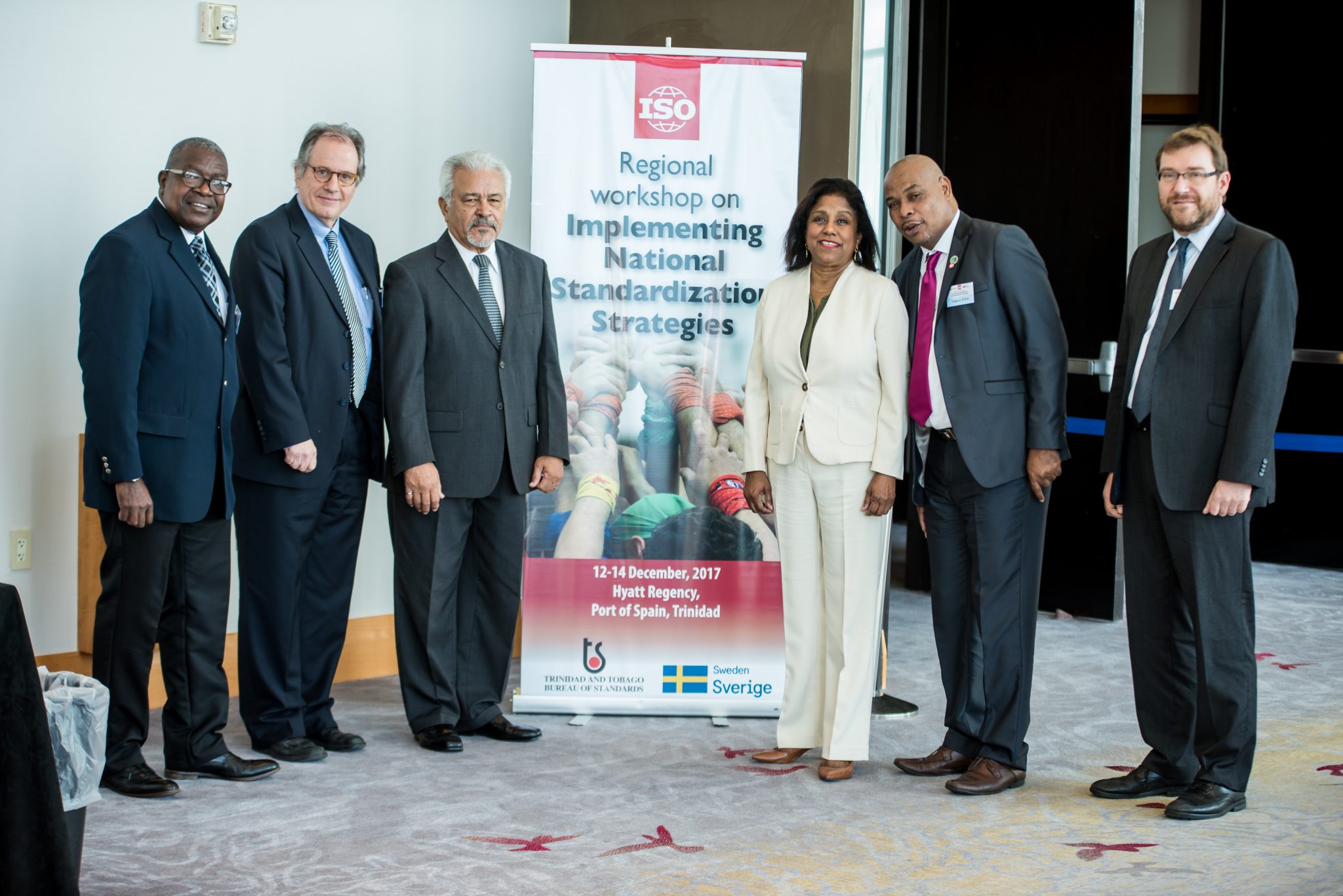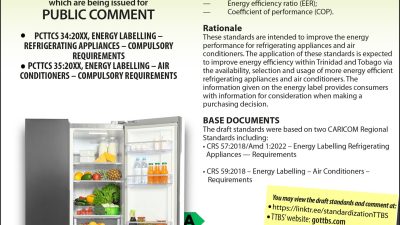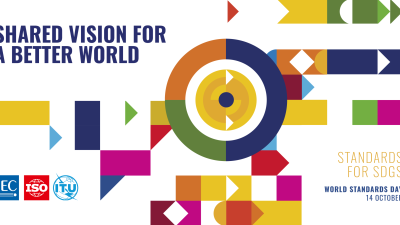STANDARDIZATION DIVISION
Tel: (868) 662-8827 Ext 2041 or 2042 | Fax: (868) 663-4335
standardization@ttbs.org.tt

STANDARDIZATION
OVERVIEW
The Standardization Division formulates national standards with the objective of improving local industrial practices and enhancing trade opportunities regionally and internationally. The Division also facilitates public education by hosting seminars on the various standards developed.
The process of developing national standards involves seeking consensus from a wide cross-section of stakeholders to ensure that their relevant interests are addressed in the final document. The national standards include specifications, codes of practices and test methods. These documents form the basis of the monitoring, testing and certification activities of the Bureau.

Standards for Public Comment
WHAT IS A STANDARD?
A standard is a document that provides technical specifications or other precise criteria to be used constantly as rules, guidelines or definitions of characteristics, to ensure materials, products, processes and services are fit for their intended purposes.
The Trinidad and Tobago Bureau of Standards develops standards through consultation with relevant interest groups, and public comment is invited on all draft standards before they are declared as Trinidad and Tobago Standards in accordance with the provisions of the Standards Act No. 18 of 1997.

NATIONAL
STANDARDS
Mandate of TTBS
In accordance with the Standards Act No. 18 of 1997, the Trinidad and Tobago Bureau of Standards (TTBS) shall promote and encourage the development and maintenance of standards and further shall establish standards for the following: to improve goods produced or used in Trinidad and Tobago; to ensure industrial efficiency and development; to promote public and industrial welfare, health and safety; and to protect the environment.
TTBS’ standards development mandate excludes foods, devices, drugs and cosmetics, which fall under the purview of the Ministry of Health.
Types of standards
TTBS develops two types of standards based on the principles of consensus, openness and transparency:
Voluntary standards
A voluntary standard is a document which can be used by stakeholders at their own discretion, it does not have the force of law, i.e. it is not a mandatory document.
A regulatory body may choose to utilize a voluntary national standard in mandatory manner to support their regulatory framework.
Compulsory standards
A Compulsory Standard is a declared national standard, which has been accorded compulsory status by the Minister of Trade and Industry, in accordance with Section 18 of the Standards Act No. 18 of 1997.
Where a compulsory national standard is declared, TTBS is responsible for the enforcement of the compulsory national standard.
BENEFITS OF
STANDARDS
As consumers, we all benefit from the work carried out in the sphere of standardization. The technological advancement and sophistication in production processes have increased the variety of goods and products available to the consumer. This has led standard bodies and certification agencies to provide safeguards and assurances that the products that we buy meet the minimum acceptable standards. In this way, standards serve to protect the consumer and ensure satisfaction.
Consumer protection programmes benefit from standards that contain realistic, practical and meaningful, health, safety and performance requirements.
Consumer goods are made to be used by the consumer and therefore they need to be represented and consulted in the development of the standard. To ensure this, the Specification Committee should have at least one member representing the interests of the consumers. This provides them with the opportunity to influence the development of the standard.
Benefits of standards
- Establishment of the level of quality, thereby allowing products to be evaluated and compared;
- Streamlined production and improved manufacturing processes;
- Increased productivity and enhance efficiency;
- Reduced costs for consumers;
- Provision of the basis for trade transactions;
- Minimization of waste;
- They ensure safety and performance;
- They ensure products and services perform their necessary functions;
- They facilitate interchangeability of products and services designed for the same purpose.
REGIONAL & INTERNATIONAL
STANDARDS
Regional Standards
The CARICOM Regional Organization for Standards and Quality (CROSQ) was established by an Intergovernmental Agreement signed by CARICOM Member States on February 4th, 2002. It replaced the CARICOM Common Market Standards Council (CCMSC) that was operating since 1976. The change was motivated by trade liberalization and globalization of markets leading to increased international competition for CARICOM goods, the free trade of goods and services within the region, the inability of the CCMSC to handle issues outside of its original terms of reference and increased consumer awareness and choices.
International standards
Two of the major International Standardizing bodies responsible for the development of International Standards are:
ISO, International Organization for Standardization; and
IEC, International Electrotechnical Commission.

News & Events
Refrigeration and Air Conditioning Sector Stakeholder Consultation
The Trinidad and Tobago Bureau of Standards (TTBS) is committed...
For Public Comment: Draft Compulsory National Standards Related to Energy Labelling
The Trinidad and Tobago Bureau of Standards has issued the...
PUBLIC ENQUIRY — VOTING ON DRAFT REGIONAL STANDARD
CROSQ has issued the following Draft CARICOM Regional Standard for...
TTBS Commemorates World Standards Day 2025
October 14th, 2025. As Trinidad remains committed to...





